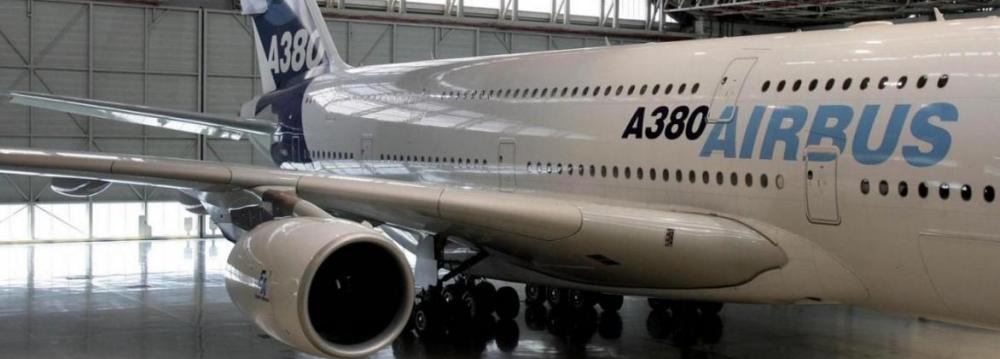The Dubai Air Show ended in a fog of speculation on Thursday when UAE organizers abandoned plans to announce a multi-billion-dollar deal that could have reversed a slump in orders at the Middle East’s largest aviation event.
A senior UAE official said the deal would have added 10-15% to total deals which he estimated at $39.8 billion, but denied it involved a keenly awaited French fighter purchase.
He was speaking on the last day of the Nov. 8-12 event, a day after the UAE’s air force chief told Reuters that talks to buy the French Rafale were in the “final stages”.
Word of the hurriedly arranged news conference swept through the exhibition, sending western defense executives and government officials scurrying to join a depleted press corps to hear what two of them predicted would be a Rafale order.
Major General Abdullah al-Hashimi, executive director of strategic analysis at the UAE Defense Ministry, told the news conference that the deal he had hoped to announce could not be finalized but was not a combat jet deal. “It’s too sad that we couldn’t announce it. The deal was looking good,” al-Hashimi said.
Abu Dhabi’s negotiations to buy 60 fighter jets have dragged on for years and have a history of producing surprise announcements coinciding with the show, held every two years.
The theatrical end to an otherwise quiet event–subdued by low oil prices and concerns over the cost of Middle East conflicts–highlighted the stakes involved for France’s competitors as they try to dampen a surge in Rafale exports.
Military analyst Francis Tusa however said the $4-6 billion value implied by al-Hashimi’s remarks was too low to involve 60 of the planes, based on prices paid by Egypt and Qatar.
“If Rafale were in the bag they would have signed it on day one; they never leave the big announcements until the end.”
A fresh Rafale order would be a setback for the four-nation Eurofighter program and Lockheed Martin, which had offered upgrades to existing F-16s.
Rafale export hopes rose as Britain’s BAE Systems said it was cutting Eurofighter production.
Airbus Ahead of Boeing
Boeing is lagging behind Airbus in new orders for 2015 as the two emerge from the mostly uneventful Dubai Air Show.
With just six weeks left in the year, it will be hard for Boeing to catch up to Airbus’ 2015 orders for 899 jets, or 63% of the orders overall, versus Boeing’s 526 at the end of the air show.
Boeing did land an order for two 777 freighters from Etihad, but Boeing’s 75-plane 737 order from Jet Airways that was announced this week already had been booked, so it doesn’t add to the overall count.
Airbus won new orders from VietJet and British Airways, the former for 30 A320s.
Boeing still has a large seven-year backlog, and plans to deliver 750-755 jetliners this year, most of them produced by Boeing assembly plants in Renton and Everett. This means the weaker orders this year have no immediate bearing on production.
But in the longer run, Boeing’s weaker 737 order backlog may make it harder to match Airbus plans to increase production to 60 of its A320s a month by 2019.
Airbus’ particular order strength has been in the narrow-body sector, where its A320 series continues to accelerate past Boeing’s 737.
So far this year Airbus has won 762 orders for A320s, or 65% of the total.


